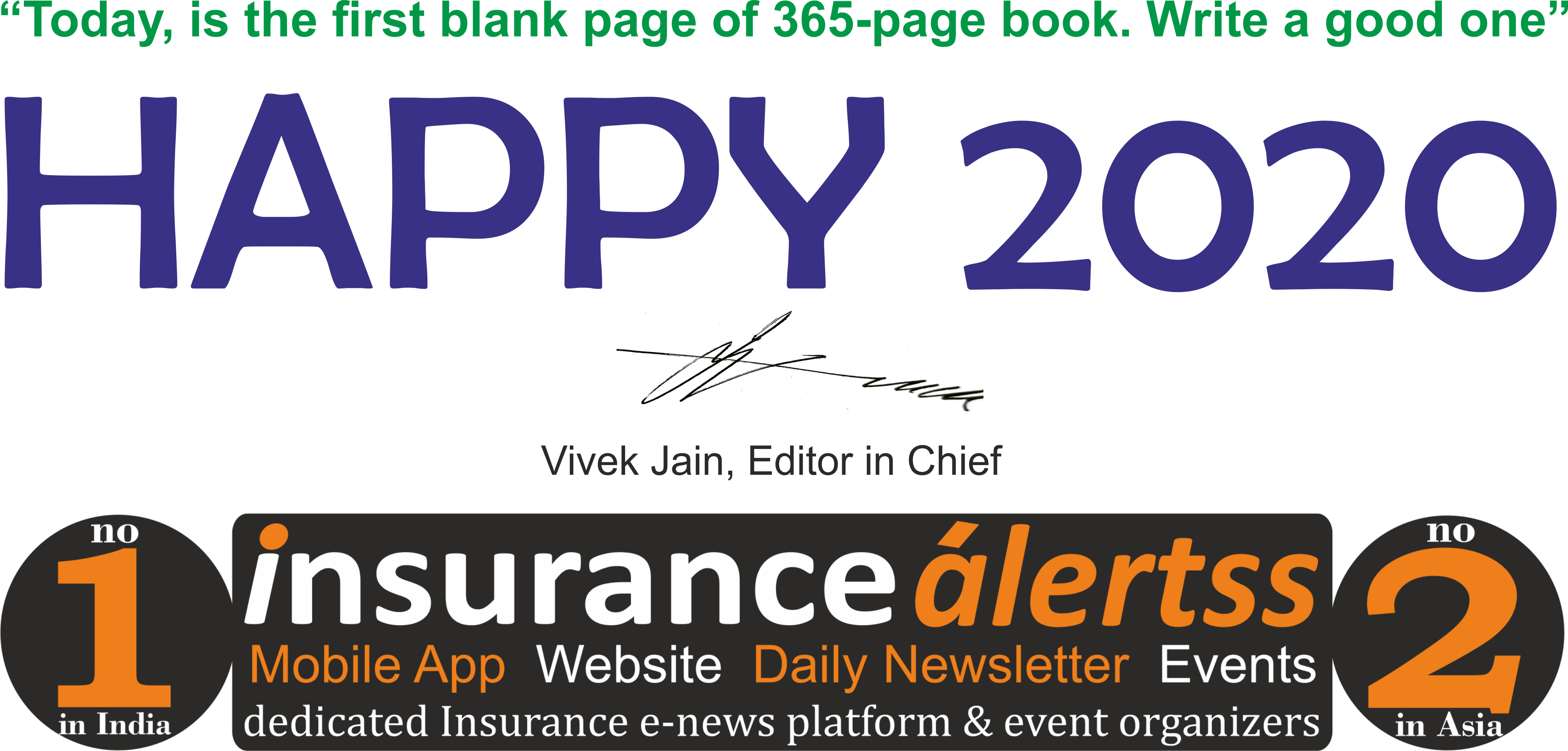 30-12-2019
30-12-2019
Irdai considering capital infusion options for insurers

 Insurance Alertss
Insurance AlertssIrdai considering capital infusion options for insurers
Mumbai: The Insurance Regulatory and Development Authority of India (Irdai) is considering new capital-raising options for insurers if the Reserve Bank of India (RBI) follows through on its informal proposal for banks to pare their stakes in insurance companies to 30%, said two people, including a top Irdai official, requesting anonymity.
The central bank proposal on slashing banks’ holding limits in non-core businesses, including insurers, will be discussed in the next high-level meeting between finance minister Nirmala Sitharaman, Irdai and RBI next month, they said. The proposal, made by RBI in a meeting with bankers last week, is aimed at ring-fencing banks from systemic risks arising from non-core businesses, besides prodding lenders to focus on increasing credit flow to the sector amid slowing economic growth.
The proposal, if implemented, will, however, make it harder for insurance companies to raise capital. “This is an advisory by the RBI to banks. The central bank wants to safeguard banks from any risk arising from non-banking business exposures in the backdrop of rising provisioning costs for banks due to increasing non-performing assets (NPAs) in their books," said the Irdai official.
Indian banks are struggling with a massive pile of bad loans, crimping their ability to lend. At the end of the September quarter, the gross bad loan ratio for banks was 9.1%. “If banks’ holding limit is curbed, Irdai will consult the industry and will be compelled to work out new ways for insurance firms to facilitate capital infusion. For listed companies, offer-for-sale can be one route to let the parent bank sell a stake. For unlisted insurers, IPO is the best way to raise capital. But since the market is not conducive, at the moment very few insurance firms are approaching Irdai for an IPO. In such a scenario, new legitimate ways for capital infusion have to be created under Irdai rules to let insurance companies function smoothly, without hurting their growth rate," the second person said.
Whenever capital is infused in an insurance business, all promoters are required to put in some amount of money, as per their shareholding. For instance, if a foreign joint venture partner with 49% is willing to infuse ₹49, the other partner (a bank or any Indian promoter) will have to shell out ₹51 if it holds a 51% stake in the insurance firm. If either of the partners is unable to put in the required funds, the entire capital infusion process gets stalled.
In light of this requirement, either Irdai has to devise a new capital infusion route, or the government may need to relax the existing capital infusion norms for insurance companies if the RBI puts a cap on banks’ holdings in insurance firms. “Such significant decisions cannot be taken in a hurried manner. Globally, banks have been promoters of insurance firms as they have enough branch network, distribution capabilities, financial transaction-related advantages and an adequate understanding of financial products. Suddenly, limiting their role in the insurance industry may not be ideal. RBI must give banks enough time to trim stakes," added the second person.
Stocks of all listed bank-controlled insurers fell following a 27 December Mint report on the RBI’s plans to limit banks’ stake in insurance firms, underperforming the benchmark Sensex, which gained 1% to reach 41,575.14 points on Friday. Shares of HDFC Life Insurance Co. Ltd fell as much as 1.02% to ₹629.05 in intraday trading, before closing at ₹631.20 (down 0.68%) on the BSE. ICICI Lombard General Insurance Co. Ltd fell 1.68% to ₹1,399 in intraday trading before closing the day’s trade down 0.79% to ₹1,411.65, while ICICI Prudential Life Insurance Co. Ltd fell 1% to ₹488.75.
According to the existing norms, a bank can hold a maximum of 50% in an insurance JV in the normal course of business. However, on a selective basis, the RBI may permit a higher equity contribution by a promoter bank initially, pending divestment of equity within a period specified by the banking regulator.
“Slashing the holding limit from 50% to 30% is huge. And, in this market, it will be even more difficult for any shareholder to get the right valuation. Among all industries, insurance is one of the rare sectors that is doing well and growing at 15-20% annually. But selling so much stake will be tough unless a time period of at least three years is given. But if RBI indeed goes ahead with the proposal, a working paper will be shared with Irdai, ministry of finance and banks," the third person added.
Source: Live Mint
